Bible 101 – Old Testament, Part II
Sycamore Creek Church
September 2, 2012
Tom Arthur
Peace Friends!
Today we wrap up a series that was originally supposed to be one week on the Old Testament and one week on the New Testament. But once I began working on trying to give you an overview of the Old Testament, I found that I couldn’t do it in one week. In fact, two weeks is still pushing it. So I’m putting the New Testament off for another day. And what was a Bible 101 series has become an Old Testament 101 series.
I have struggled with the Old Testament. In fact, as I was getting ready to go to seminary I was on the verge of another faith crisis around several questions I had about the Old Testament. I know it’s a little weird to hear someone talk about going to seminary to be a pastor and being on the verge of a faith crisis because of the Old Testament, but I’m just telling you how it was. I thought that my Old Testament class was going to be a serious challenge to my faith, but what I found instead was that my Old Testament professor, Ellen Davis, saved my faith. She didn’t save me (that’s Jesus’ job), but she did renew my faith and trust in the Bible, particularly the Old Testament.
I’m not the only person to struggle with the Old Testament. I hear questions all the time about how to understand the Old Testament. It seems so, well, old. Any anything that is old just smacks of old underwear, old moldy cheese, old fashion, and old technology. Who would want to spend any time with old stuff that is outdated? I’d sum up people’s concerns about the Old Testament in this way:
The Old Testament is hard to understand, scientifically inaccurate, and presents an immoral angry and vengeful God. Given all this, why would I care to spend any time at all in the Old Testament?
These are important questions, and let me speak to the guest for a moment. If you’ve joined us today and have these kinds of questions about the Bible, you’re not alone. We’ve got them too. Hey, I’m the pastor at Sycamore Creek Church, and I’ve still got questions like this. Your questions are welcome. We’re a curious church. We’re curious about God and the Bible. You don’t have to check your questions at the door when you come here. You are welcome, questions and all.
So last week I began to unpack these questions with another question: what does Jesus think of the Old Testament? And because Christians think Jesus is God’s son, we can rephrase the question this way: What does God think of the Old Testament? We get a glimpse of an answer to that question when Jesus is arguing with some of the religious leaders of his day. He says:
Woe to you, scribes and Pharisees, hypocrites! For you tithe mint, dill, and cumin, and have neglected the weightier matters of the law: justice and mercy and faith. It is these you ought to have practiced without neglecting the others.
Matthew 23:23 NRSV
In this argument about tithing, giving ten percent of what you make back to God, Jesus points out that the religious leaders of the day are following the letter of the law so closely that they’re missing some weightier parts. Jesus thinks there are parts of the Old Testament (although he would have simply called it “the scriptures” because there was not yet a compiled New Testament) that carry more weight than others.
I use dumbbells in the morning to exercise. Some are light and some are heavy. They’re all dumbbells but because of their different weights they’re used for different things. Light weights are used in high repetition to build endurance. Heavy weights are used in low repetitions to build strength. They are all useful for training to get stronger, but they are not all used in the same way because some are weightier than others.
So here’s the main point of these two weeks on the Old Testament:
Main Point: All scripture is inspired, but not all scripture is equal.
If that makes you a little nervous to say that, then we can say it exactly the way Jesus would have said it: all scripture is inspired (God breathed), but not all scripture is equally weighty.
The big question then is how do you know which parts are more or less weighty? I think one key to understanding the weightiness of a section is to read slowly, carefully and humbly paying special attention to genre. Genre? Yes. Genre.
You may not know the word but you know genre. Let me explain it this way. Here’s your Bible quiz for the morning. What does “Bible” literally mean? Bible means library. The Bible is a library of sixty-six books and thirty-nine of them are in the Old Testament. A library is like a bookstore, it is arranged with different topics in different sections. Those different sections are the different genres: fiction, cookbooks, biography, gardening, memoir, etc.
When I recently went on vacation I picked up two kinds of books from the library: historical fiction and some cookbooks. You read these kinds of books very differently. I read the fiction for long stretches of time in my bed before I go to sleep. I read the cookbook in short spurts in the kitchen paying very close attention to details. The difference between one teaspoon and one tablespoon can be disastrous. You would think I was weird if I took the cookbook to bed and read it for hours at a time before I went to sleep. There are different kinds of books for different kinds of situations that are read very differently.
Another kind of reading I do is magazine reading. Where do you read magazines? I prefer to read magazines while sitting on the throne in the throne room of my house, if you know what I mean. So you even read some kinds of books or reading material on the toilet. What do you read on the toilet?
So there are three big sections of the Old Testament:
1. Story of Israel (Pentateuch/Torah & History)
2. Wisdom (Emotions & Wisdom)
3. Prophets (Major & Minor)
Last week we looked at the first big section: the Story of Israel. We saw that this section is made up of books that tell the stories that define who the family of Israelis and is not (Israelliterally means “those who wrestle with God”). Today we’ll look at the other two big sections of the Old Testament: wisdom and prophets.
Wisdom
Within the wisdom books I’d suggest that there are two big sections: wisdom “proper” and emotion books. That may not be quite right, but that’s what I’m going with today. The wisdom “proper” books include Job, Proverbs, and Ecclesiastes. The emotion books include Psalms, Song of Songs, and Lamentations.
Before we get much further let’s talk about a definition of wisdom. Wisdom is what is true for most people most of the time. Wisdom is practical common sense knowledge. Wisdom is not a promise. Take for example this very popular proverb about parenting:
Train children in the right way, and when old, they will not stray.
Proverbs 22:6
Many parents get very confused and end up feeling very guilty because they take this as a promise from God. It’s as if God is saying to each parent: if you do the right things, you can rest assured that your child will grow up and do the right things.
Now of course, that is what Sarah and I are planning. We are being perfect parents so that Micah will be a perfect child and later a perfect adult. We read the Bible religiously and do all that it says in regard to parenting. We add to biblical knowledge all the contemporary parenting books. We will make no mistakes. So far in about two years of Micah’s life, we’re doing pretty good. We’re raising him in the right way, and we expect it to pay dividends. When he is an adult, we look forward to kicking back, enjoying his lucrative career and having him take care of us in our old age. All the while we expect that he will be a model Christian completely and totally holy without sin always doing exactly what God would want. Proverbs 22:6 is a promise to this end. Right? NO!
It’s not a promise because it’s wisdom literature. It tells you what happens most of the time for most people. But to think that it’s a formula for 100% success in raising children completely and totally neglects the reality of free will. God has given us the wonderful and terrible freedom of choosing or rejecting God’s love. Children are given this freedom just like the rest of us. Hey wait. We were all once children!
OK, the point of that was to say that if you’re not paying attention to the genre of wisdom, you’re going to miss something really important about how to read the proverbs. You’ll be sitting in bed with your cookbook reading it for hours. All scripture is inspired but not all scripture is equal.
Emotions
Then there’s the emotional wisdom books of the Bible: Psalms, Song of Songs, and Lamentations. Often in these books we learn more about the emotions of the person writing the book than we do about God who it is written to or about. Consider some of the psalms that we often have a difficult time with: the cursing psalms.
One of the worst cursing psalms is Psalm 137. It is written during the time of exile in Babylon. Remember from last week the big historical timeline ofIsrael? They began in Egypt as slaves and were delivered by God through Moses. They entered the promised land and were ruled first by judges and then by kings. There was civil war that split Israel in half. The Assyrian empire sacked the northern kingdom of Israel and then the Babylonian empire sacked the southern kingdom of Israel, calledJudah. It was in this sacking that the temple was destroyed. In both instances the attacking empire took the wealthy and elite away from their homeland and into exile.
Imagine with me for a moment the devastation of having your city sacked and then being carted off into exile in a foreign land. Imagine this happening today to us. Psalm 137 is written by a worship leader so let’s imagine this happening to our worship leader, Jeremy. Jeremy’s pregnant wife has been killed in the siege. The foreigners have also killed his son. Then they’ve carted him off to their homeland away from everything that is familiar to him. When they get there they rub salt in the open wounds by asking him to sing one of those praise songs that he used to sing at SycamoreCreekChurch. He says, Sure. I’ll sing you a praise song. You’ve killed my wife, my unborn child, and my two-year-old:
Happy shall they be who take your little ones and dash them against the rock!
Psalm 137:9
Now in that context, are you learning more about God or more about Jeremy? When you are reading the books of emotion, be careful to make that distinction. All scripture is inspired but not all scripture is equal.
Prophets (Major & Minor)
Last week we looked at the books that tell the story of Israel and today we’ve looked at the wisdom books. There’s only one more section: the prophets. Within the prophets there are major prophets and minor prophets. What’s the difference between a major and minor prophet? It’s not the key he sings in. (That was a joke.) It’s simply the length of the book he wrote. The major prophets were more wordy than the minor prophets.
The Major Prophets are: Isaiah, Jeremiah, Ezekiel & Daniel (Apocalypse).
The Minor Prophets are: Hosea, Joel, Amos, Obadiah, Jonah, Micah, Nahum, Habakkuk, Zephaniah, Haggai, Zechariah, Malachi.
A prophet is generally someone who speaks for God who reminds the family of God when it is living into God’s story and when it is not living into God’s story. There are several ways that the prophets go about doing this. One way is through apocalyptic literature. Apocalypse simply means “revelation.”
Large portions of Ezekiel and Daniel are apocalyptic. Here’s a taste:
In the middle of it was something like four living creatures. This was their appearance: they were of human form. Each had four faces, and each of them had four wings…As for the appearance of their faces: the four had the face of a human being, the face of a lion on the right side, the face of an ox on the left side, and the face of an eagle.
Ezekiel 1:5-12 NRSV
I think one of the most helpful ways to understand apocalypse is as an ancient political cartoon. If you saw a political cartoon today that had a donkey and an elephant in it you’d know immediately that we’re talking about the democrats and republicans. If the cartoon has the colors red, white, and blue in it, then you know we’re talking about the USA. In the same way, apocalyptic literature uses symbols that everyone in its day understood but today we’ve lost the meaning because we aren’t in that culture. So it takes some extra work to unpack the symbolism of apocalypse.
Another way that prophets speak for God is through “sign acts” or what I like to call “performance art.” In the performance art of the prophets we get a taste of what God’s emotions are like. Hosea was called by God to marry an unfaithful wife to symbolize Israel’s unfaithfulness to God. Whew! Here’s another somewhat startling performance art act by the prophet Isaiah:
At that time the LORD had spoken to Isaiah son of Amoz, saying, “Go, and loose the sackcloth from your loins and take your sandals off your feet,” and he had done so, walking naked and barefoot. Then the LORD said, “Just as my servant Isaiah has walked naked and barefoot for three years as a sign and a portent against Egypt and Ethiopia…”
Isaiah 20:2-3 NRSV
Isaiah walked around butt-naked for three years to make a point about God! Teenagers, tell your parents next week when you come to church that you’d like to go naked and barefoot to make a point about God. See what happens.
I like to think of the prophets as ancient hippies. In fact, this November we’re going to be doing a series called Ancient Hippies looking at four of the prophets: Micah, Amos, Hosea, and Jonah. Within the words and performance of these ancient hippies we see within God a deep passion and love for you that sometimes looks like the passion of a middle school girl for Justin Bieber. It makes God do some crazy stuff. Maybe that’s why we at Sycamore Creek Church talk about igniting authentic life in Christ. But we not only ignite it, we fan it into an all consuming passion for God.
A third way that the prophets remind God’s family who they are and are not is through proclamations of justice. My wife and I named our son Micah because of a famous verse in the book by the prophet Micah about justice:
He has told you, O mortal, what is good; and what does the LORD require of you but to do justice, and to love kindness, and to walk humbly with your God?
Micah 6:8 NRSV
It is our hope that he would grow up to be one who does justice, loves kindness, and walks humbly with God. That’s why we named him Micah. And now we are back full circle to what Jesus thinks of the Old Testament and what is weighty and what is not so weighty. Let’s read that argument again that Jesus was having with the religious leaders:
Woe to you, scribes and Pharisees, hypocrites! For you tithe mint, dill, and cumin, and have neglected the weightier matters of the law: justice and mercy and faith. It is these you ought to have practiced without neglecting the others.
Matthew 23:23 NRSV
What are the weightier matters of the law? Justice. Mercy. Faith. If you want to know what to pay special attention to in the Old Testament look for the moments of justice, mercy, and faith. All scripture is inspired but not all scripture is equal.
Practical Suggestions
So here are some really practical suggestions for how to do that:
- Read together – Read with other people and don’t forget the people who have come before you. Read what other Christians have thought historically. Also, don’t forget to read with people who are different than you. Sometimes you’ll be blind to something obvious that someone from another culture or ethnicity will notice.
- Pray a psalm a day – The psalms are emotion filled prayers. Pray one each morning. There are 150 of them. So it will take you roughly five months to work your way through them. Over time you will find that the psalms provide you words to pray when you don’t have your own words.
- Read a proverb a day – The proverbs are full of practical wisdom for living today. Read one proverb a day. I have an app on my phone that displays one proverb each day.
- Read with a good Bible dictionary – If I had to pick one book besides the Bible to help me read the Bible it would be a good Bible dictionary. My favorite is Eerdman’s Bible Dictionary. When you’re reading a book of the Bible, look that book up and read the brief entry about the context and themes of that book. When you come across the name of a place or person, look that up in the dictionary and learn more about that person or place. It will help you know whether that part of the Bible is weighty or not.
- Read with a good atlas – My favorite is Baker’s Atlas of Christian History. In the Bible you’re reading about a foreign land. It is helpful to see a map and know where you’re reading about. Is it happening in the dessert, on a mountain, or on the coastlands? These will give you clues to deeper meanings.
- Read with a good handbook – Lastly, pick up a Bible handbook. My favorite is How to Read the Bible Book by Book. You’ll find a chapter on each book of the Bible with helpful guides for what to look for as you’re reading it. Another helpful guidebook is Philip Yancey’s The Bible Jesus Read. Yancey unpacks much of what I’ve said in his characteristically deep and meaningful way.
Here’s the problem we’ve been wrestling with today:
The Old Testament is hard to understand, scientifically inaccurate, and presents an immoral angry and vengeful God. Given all this, why would I care to spend any time at all in the Old Testament?
Here’s one answer to that problem:
Where did Martin Luther King Jr. get his inspiration for his I Have a Dream speech? The Old Testament:
Every valley shall be exalted, and every mountain and hill shall be made low: and the crooked shall be made straight, and the rough places plain: And the glory of the LORD shall be revealed, and all flesh shall see it together: for the mouth of the LORD hath spoken it.
Isaiah 40:4-5 KJV
All scripture is inspired but not all scripture is equal.
Prayer
God, sometimes the Old Testament seems very difficult to read. Help us pay attention to which parts are weightier than others. Help us read slowly, carefully, and humbly while paying special attention to the kind of genre we’re reading. Help us meet you in the pages of the Old Testament so that our lives are transformed into ones that seek justice, mercy, and faith. Then use us to transform the world. Amen.
Each week we provide discussion questions for small groups that meet regularly to discuss the message for the week. Want to find a small group to join? Email Mark Aupperlee – m_aupperlee@hotmail.com.
- What do you like or not like about reading the Old Testament?
- What is your favorite or least favorite story from the Old Testament and why?
- Read Matthew 23:23. What do you make of Jesus’ statement that some parts of the Law/Old Testament are “weightier” than others?
- What resources (books, apps, websites, etc.) have you found helpful for reading the Old Testament or Bible?
- How can we pray for you in your discipline of reading the Bible?
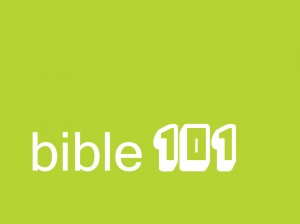
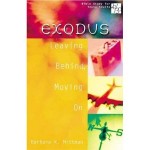
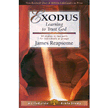

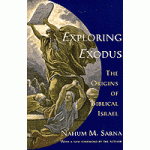
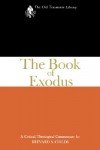

Recent Comments